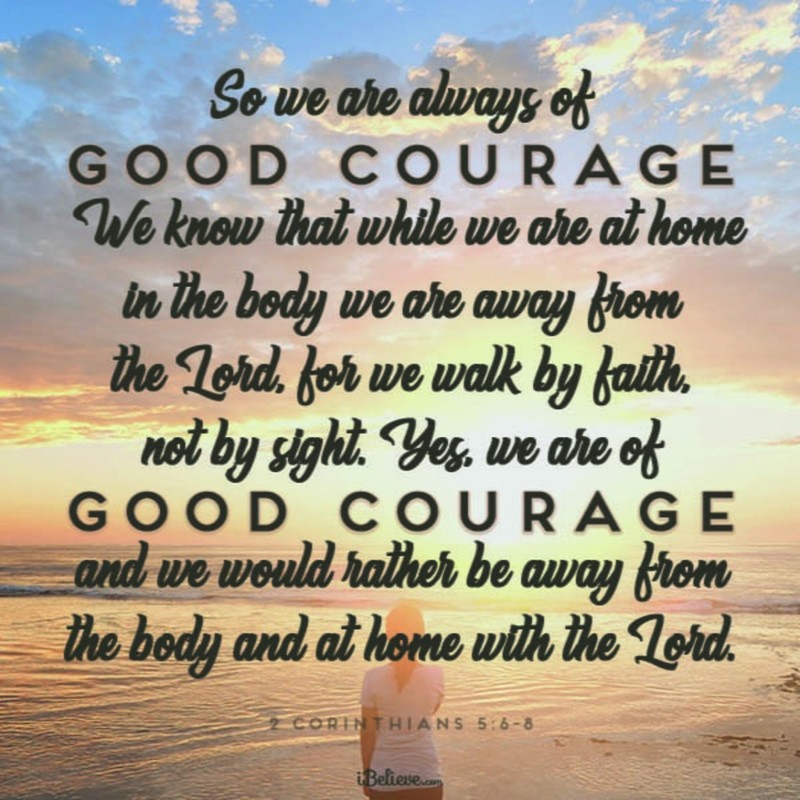
A year ago, last summer, my husband and I were dreaming about growing our family. Getting pregnant with our first child had been easy; pregnancy was uncomplicated. We had no reason to think round two would be any different.
Months came and went. A new year began, and I started feeling run down, constantly exhausted and had unrelenting back pain. On good days the pain was a manageable aching that left me constantly shifting and stretching, trying to find relief, and on bad days left me on the couch all day, barely able to move.
Desperate for relief, I finally went in for an x-ray. The results revealed degenerative disc disease in my lower spine. While it was nice to know I wasn’t imagining a problem, I quickly started fearing what it meant for my future. If this is how I feel at 30, how will I feel at 60?

"To say it simply, I am grieving."
Finally, in March, we rejoiced over a positive pregnancy test. But after a few weeks, I knew something wasn’t right. It took my body a few more weeks to confirm what my heart already knew. On the most beautiful day of spring, as life was bursting open all around us, life left me. The warm breeze blew into our open windows, all the birds were singing, and I bled and bled, heartbroken.
A month after my miscarriage, an endocrinologist diagnosed me with Hashimoto’s Disease, a common autoimmune disease that can cause fatigue, as well as infertility and pregnancy loss. “You might have trouble keeping another pregnancy,” the doctor told me as gently as possible.
In a few short months, I have lost a child, been diagnosed with two life-long health issues, and have already been labeled “high risk” for any future pregnancy I might have. To say it simply, I am grieving.

Wrestling with Grief
I know my sorrow and pain is not the worst trial, not even the worst trial of my friends this year, and I’ve fought a lot of complicated feelings over my grief because of this. Even in writing this, I’ve written and re-written, worried about sounding unnecessarily dramatic or melancholy. But the truth is, my heart is heavy. I am struggling with fear and anxiety over my future. I’m struggling with anger over the loss of control I thought I had in my life.
As a Christian, I am of course wrestling with all of this through the lens of my faith, examining and reexamining it in light of what I claim to believe about who God is and what he says about our life here in this broken world. In the midst of my struggle for peace, I am learning afresh the power we are given when we recall, reflect and rejoice in the promises of God.

Making Promises in an Uncertain World
“The remedy for unpredictability, for the chaotic uncertainty of the future, is contained in the faculty to make and keep promises,” Hannah Arendt writes in The Human Condition. In other words, promises are what we make and keep to find stability in an unstable world. We make promises to one another in marriage, that for better or worse, in sickness and in health, we will not abandon one another. We sign dozen of papers when we buy a house, promising the bank a certain portion of our income until we’ve paid off the loan on our home. We promise to follow the rules of the road when we are issued a driver’s license. We promise our worried, anxious mothers we will be home by curfew. All these promises are our attempt to fix the problem of unpredictability, and the anxiety that unpredictability brings us.
Of course, promises may be broken, and often are. Children break curfews. People drink and drive. Husband and wives separate. “Men can never guarantee today who they will be tomorrow,” Hannah Arendt notes. For all our promise making, our ability to keep those promises falls woefully short.

Clinging to the One Who Always Keeps His Promises
This makes the promises of God all the sweeter, and the only thing that lifts my soul and moves me toward hope and courage in the moments when I’m tempted to despair. Because I know that God is unchanging and always faithful, I can trust he will not break his promises to me. And incredibly, we serve a God who is delighted to make promises to us, promises he intends for us to cling to in the most uncertain moments of life.
So, right now, in the midst of grief and my struggle for peace and the courage I need to face unknowns, I’m trying to cling to his promises. I haven’t done it perfectly. I still get anxious, my heart still races, I still feel angry. But slowly, the Word is penetrating my heart and reminding me that no matter what the future holds, God will hold me up.

"Soon all of life will be marked by perfect peace, perfect wholeness and perfect joy."
When my back pain wakes me up at four in the morning and I’m tossing and turning, fretting and frustrated, I tell myself, “Christ will transform my lowly body to be like his glorious body.” (Philippians 3:20-21)
When I leave a doctor’s appointment with more questions than answers, I remind myself that my body, in all of its brokenness, was knit together with perfect knowledge by a God whose steadfast love for me is deeper, wider, higher than I can fathom (Ephesians 13:8). This love compels him to work all things out for my good (Romans 8:28). I don’t understand it all right now, but one day I will. “All that I know now is partial and incomplete, but then I will know everything completely, just as God now knows me completely.” (1 Corinthians 13:12)
When my mind drifts to the precious little one we lost and I am filled with an ache that is as intense as it was on that spring day, I think on Psalm 56:8. God’s love is so intimate, his sorrow over my sorrows is so real, it is as if he sits next to me, collecting every tear that falls, recording every one. Not a second of my sorrow is unnoticed or forgotten.
When fear of the future grows in me and I’m filled with anxiety over what my life may be, I take the greatest comfort in the fact that this life on earth is a few handbreadths (Psalm 39:5), and soon all of life will be marked by perfect peace, perfect wholeness and perfect joy.

Ordinary Courage
These glorious promises for my future home with the Lord are what give me the courage I need to face my present days. This kind of courage, as Brené Brown puts it, requires me to show up in my life. Instead of numbing or withdrawing or rationalizing or indulging or resenting my way from one moment of life to the next (the ways we typically deal with grief and hurt), this kind of courage asks me to face each day honest about the reality of my suffering and my needs. It also requires practicing daily gratitude for what I do have, rather than focusing only on what is missing or broken. This kind of courage, Brown says, is a daily commitment, not a character disposition or big moment of bravery the way we usually think of courage.
The promises of God give me the courage to keep praying for, and risking, another pregnancy and possible miscarriage. Knowing I will see our miscarried child one day, knowing that God has held me up in my deepest grief and will continue to hold me up, gives me the courage I need to risk more loss.

The Courage His Promises Give Us
The promises of God give me the courage to keep being a good friend to my friends with little ones, to not withdrawal or resent the happiness of others, because I know my present suffering does not compare to the glory that awaits me (Romans 8:18), and so I need-not compare my life to anyone else’s.
The promises of God give me the courage to face the physical pain and fatigue I feel on a daily basis with hope and patience, because I know that “when this earthly tent we live in is taken down (that is, when we die and leave this earthly body), we will have a house in heaven, an eternal body made for us by God himself and not by human hands.” 2 Corinthians 5:1 (NLT)
I don’t know what trial you are walking through right now. But I know it is possible to face your suffering with courage, because your confidence is in the God of peace who promises one day to take you to an eternal home where every beautiful promise of Scripture is fulfilled. I pray that the “God of all grace, who called you to his eternal glory in Christ, after you have suffered a little while, will himself restore you and make you strong, firm and steadfast. To him be the power for ever and ever. Amen.”
Kelly Givens is the editor of iBelieve. She lives with her husband and son in Richmond, Virginia, and enjoys reading, writing, and spending time in the great outdoors.
This article is part of our courage theme for the month of August on iBelieve. What is courage? Usually, we associate courage with heroic and brave deeds. But this definition fails to recognize the inner strength and level of commitment required for us to actually speak honestly and openly about who we are and about our experiences -- good and bad. We believe this kind of “ordinary courage” is what God calls us to live into every day of our lives.
Check back here throughout August for a new story of courage as our writers tackle what it means to be faithful, courageous women in a culture that values comfort and conformity.
Photo Credit: Unsplash
Banner Design Credit: Rachel Dawson
Originally published Tuesday, 31 July 2018.









